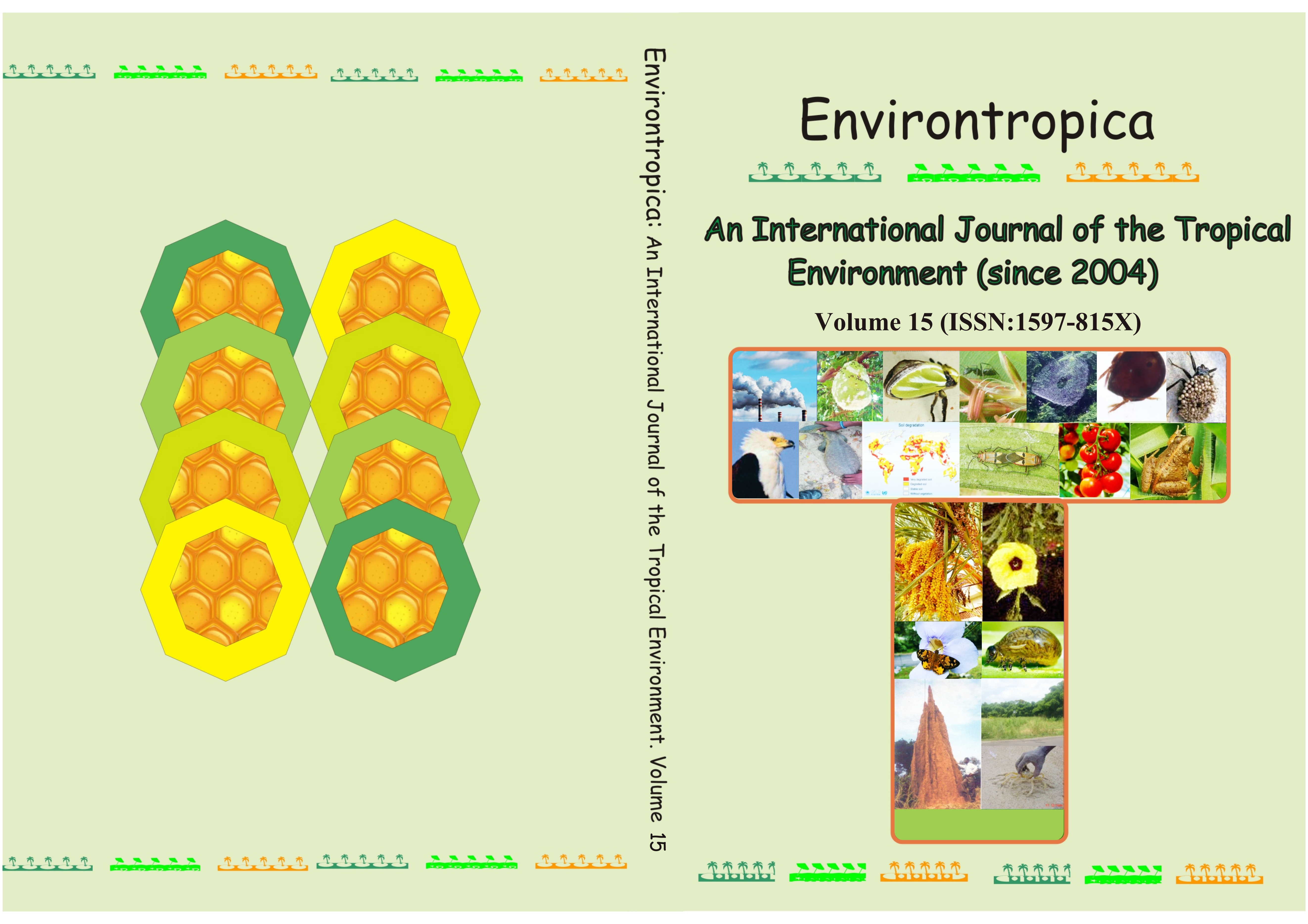
By Kayode Ogunsusi and Bola Olusola Adeleke
Abstract
Seepages and subsequent mining of bitumen could impact negatively on water, by causing pollution and reducing the quality of water needed. The study was conducted in Ode-Irele bitumen belt of Ondo State where there are bitumen seepages, and Ebute-Irele without any record of bitumen seepages served as control. Composite samples of surface water to a depth of 30 cm midstream on the sites were collected. Physico-chemical parameters of water – carbonate, bicarbonate, chloride, sulphur, sulphate, ammonia, nitrate, alkalinity, Total Dissolved Solids (TDS), Total Suspended Solids (TSS), turbidity, temperature, conductivity, Dissolved Oxygen (DO), Chemical Oxygen Demand (COD), Biological Oxygen Demand (BOD) and pH were determined using standard analytical methods. Data were analyzed using descriptive statistics, correlation and t-test at p = 0.05. Values obtained were compared with recommended Federal Environmental Protection Agency (FEPA) and World Health Organization (WHO) Guidelines. Results of the study showed that seepage sites had significantly highest mean values of sulphur, 17.65 ± 2.82 mg/l and sulphate, 5.99 ± 0.78 mg/l in surface water than 11.42 ± 2.82mg/l and 3.77 ± 0.78 mg/l respectively in control. It was found that positive associations hold between COD and each of BOD and pH with the association between COD and BOD being significant (p < 0.05). Sulphate, ammonia, nitrate, and alkalinity, as well as TDS, TSS, turbidity, temperature, electrical conductivity, COD and BOD have positive associations with sulphur. Among these, the levels of ammonia, COD, BOD and electrical conductivity were found to be higher than WHO and FEPA guidelines. Physico-chemical parameters of water such as sulphur, sulphate, COD, turbidity and electrical conductivity which were found to be higher than guideline values in the bitumen belt of Ondo State could have negative impacts on the environment,


